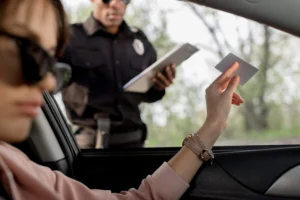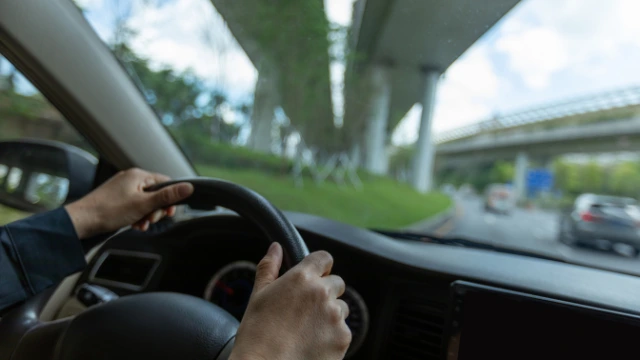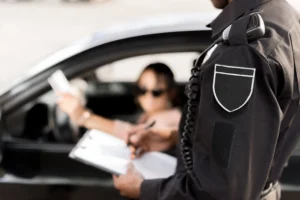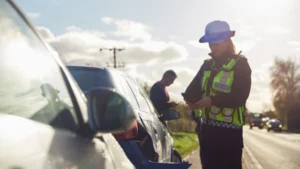

The Costly Gamble of Driving Without Insurance
Imagine you’re running late for work. You hop into your car, knowing that your insurance policy lapsed last month. “It’s just one drive,” you think. But as luck would have it, you get into an accident on your way. Now, not only are you dealing with vehicle damage and possible injuries, but you’re also facing serious legal and financial responsibility issues because you were caught uninsured driving.
Driving without insurance may seem like a small risk, but it can lead to devastating consequences, from hefty fines to lawsuits. Whether you forgot to renew your policy, couldn’t afford the payments, or simply thought you wouldn’t get caught, understanding the legal penalties and financial risks is crucial.
Uninsured Driving: What the Law Says
Uninsured driving occurs when a person operates a vehicle without an active auto insurance policy, which is required by law in nearly every state. The only exception is New Hampshire, where drivers can avoid carrying insurance if they prove they have enough assets to cover accident-related damages.
Why Is Car Insurance Required?
Car insurance laws exist to protect drivers, passengers, and pedestrians in the event of an accident. Without coverage, victims may struggle to recover medical expenses or vehicle repairs, leading to financial strain and legal disputes.
Most states require drivers to carry liability insurance, which covers damages to other people and property in case of an accident. Minimum coverage amounts vary by state, but failing to have any insurance at all can lead to severe penalties.
Legal Consequences of Driving Without Insurance
The penalties for uninsured driving vary from state to state but generally include:
- Fines: Ranging from $200 to $5,000, depending on the offense.
- License Suspension: Many states suspend licenses for 30 to 90 days or longer.
- Vehicle Impoundment: Some jurisdictions may seize your vehicle until you provide proof of insurance.
- SR-22 Requirement: Some states require high-risk insurance (SR-22), which comes with increased premiums.
- Jail Time: In severe cases, repeat offenders may face short-term incarceration.
For example, in California, a first-time offense results in a fine of up to $500, plus additional penalties if the driver is involved in an accident. In Florida, a second offense can lead to license suspension for up to three years.
Financial Responsibility: What Happens If You Cause an Accident Without Insurance?
If you get into an accident while uninsured, you are still legally responsible for all damages. This can include:
- Medical bills for injured parties.
- Vehicle repairs for the other driver.
- Lawsuits if the accident results in severe injuries or fatalities.
Many states have financial responsibility laws that require uninsured drivers to personally cover these costs. If you cannot pay, the court may impose wage garnishments, liens on your assets, or other financial penalties.
What About No-Fault Insurance States?
In no-fault states like New York, Michigan, and Florida, drivers file claims with their insurance provider, regardless of who caused the accident. However, if an uninsured driver causes serious injuries or property damage, they can still be sued for out-of-pocket expenses.
Case Study: How One Driver Faced Financial Disaster
Background
Maria, a 28-year-old waitress, was struggling financially and decided to let her car insurance lapse to save money. One evening, while driving home, she rear-ended another vehicle at a red light. The accident resulted in minor injuries to the other driver and significant damage to their car.
Legal and Financial Fallout
- Traffic Citation: Maria was cited for driving without insurance, which resulted in a $750 fine.
- License Suspension: Her license was suspended for six months, forcing her to take public transportation to work.
- Lawsuit for Damages: The injured driver sued Maria for $15,000 in medical expenses and vehicle repairs. Without insurance, she had no way to cover these costs.
- Wage Garnishment: Since Maria couldn’t pay the settlement, the court ruled that a portion of her paycheck would be garnished until the debt was settled.
Had Maria maintained even a basic liability insurance policy, she could have avoided thousands of dollars in legal and financial trouble.
How to Avoid the Risks of Uninsured Driving
1. Find Affordable Insurance Options
If you’re struggling to afford car insurance, consider:
- State-Sponsored Plans: Some states offer low-cost auto insurance programs for low-income drivers.
- Usage-Based Insurance: Some companies provide pay-per-mile plans, which are cheaper for infrequent drivers.
- Higher Deductibles: Increasing your deductible can lower monthly premiums.
2. Consider Non-Owner Insurance
If you don’t own a car but occasionally drive, non-owner car insurance provides liability coverage in case of an accident.
3. Always Verify Coverage Before Driving
If you borrow someone else’s car, make sure their insurance policy covers additional drivers. Some policies only cover the primary driver, leaving you financially responsible in an accident.
Conclusion
Driving without insurance can result in serious legal and financial consequences. Understanding the laws and your financial responsibility can help you avoid fines, lawsuits, and even license suspension. If you’ve been cited for uninsured driving, seeking legal assistance can help reduce penalties and find solutions for reinstating coverage.
Frequently Asked Questions (FAQs)
- Can I drive legally without insurance? In most states, no. Only New Hampshire allows drivers to opt out of insurance if they can prove financial responsibility to cover damages in case of an accident.
- What happens if someone hits me and I don’t have insurance? If you’re uninsured and another driver is at fault, you may still recover damages, but in some states, you may be barred from collecting certain claims, such as pain and suffering.
- Can I go to jail for driving without insurance? In most cases, no, but repeat offenses or accidents involving uninsured drivers can result in jail time in some states.
- How can I reinstate my license after an uninsured driving offense? You may need to pay fines and reinstatement fees, provide proof of insurance (often requiring an SR-22 certificate), and serve a license suspension period if required by state law.
- Does uninsured driving affect my future insurance rates? Yes. Many insurance companies consider uninsured driving a high-risk behavior, leading to higher premiums or denial of coverage.



